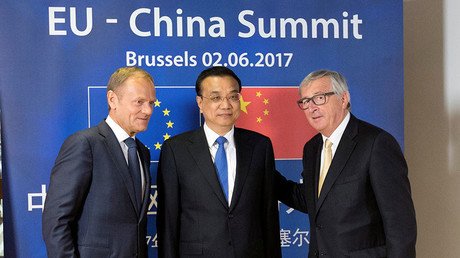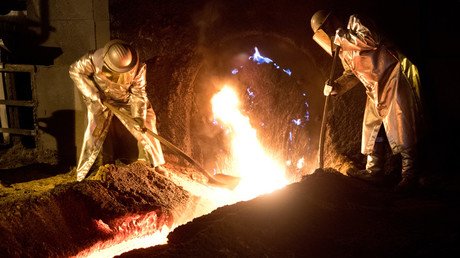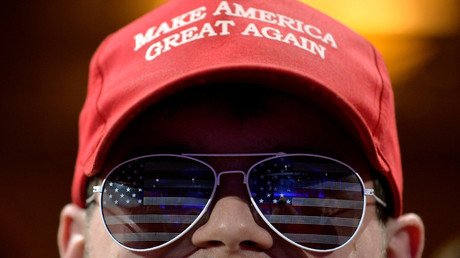Trump signs tariff order, hints at exemptions for US military allies
US President Donald Trump announced new tariffs on imports of foreign steel and aluminum. There will be tariff exemptions for individual countries, with military relationships taken into consideration, he also indicated.
Trump made the announcement before signing the aluminum and steel proclamation, raising import tariffs to 10 and 25 percent respectively. He also said that the US is open to modifying tariffs on individual countries, depending on how they treat the US. Previously, Trump had promised tariffs on all countries.
"America will remain open to modifying or removing the tariffs for individual nations, as long as we can agree on a way to ensure that their products no longer threaten our security," he stated.
“We have to protect and build our steel and aluminum industries, while at the same time showing great flexibility and cooperation towards those that are really friends of ours, both on a trade basis and a military basis,” he mentioned.
He also hinted that security concerns were key to the introduction of tariffs. "Many of the countries that treat us the worst on trade and on military are our allies," he stated. “We just want fairness.”
Trump also emphasized the possibility of remaining “flexible” with individual countries in the new tariff proposals. Canada and Mexico were given exemptions while the renegotiation of a more US-friendly NAFTA deal is underway.
Trump has been opposed to NAFTA throughout his presidency, but softened his approach during renegotiations in Mexico City last Monday. Trade Representative Robert Lighthizer was frustrated that only six of the 33 chapters in the agreement were closed, but stated that he wanted to reach an agreement “in principle”.
We have large trade deficits with Mexico and Canada. NAFTA, which is under renegotiation right now, has been a bad deal for U.S.A. Massive relocation of companies & jobs. Tariffs on Steel and Aluminum will only come off if new & fair NAFTA agreement is signed. Also, Canada must..
— Donald J. Trump (@realDonaldTrump) March 5, 2018
“We probably have one month, one-and-a-half months, to get an agreement in principle,” he told reporters. “In my view, it’s an incentive to get a deal.”
Both Canada and Mexico are among the top five steel exporters to the US, along with Brazil, South Korea, and Russia, Reuters reports.
The US is also currently negotiating a trade deal with China, Trump said, adding that “I don't know if anything is going to come of that.”
Wall Street reacted favorably toward the news as stocks rose slightly, differing considerably from when he first announced the tariff scheme. The Dow Jones plunged 420 points on March 1 after traders sold off stocks en masse.
However, many Republicans have expressed discontent with Trump’s plans for a global trade war. “We urge you to reconsider the idea of broad tariffs to avoid unintended negative consequences to the U.S. economy and its workers,” 107 House Republicans wrote in a letter to Trump on Wednesday.
Trump’s chief economic advisor David Cohn also resigned on Tuesday in protest at the plans to introduce new tariffs.
U.S. Republican Senator Jeff Flake, a vocal critic of Trump, said on Thursday he would introduce a law to nullify President Donald Trump's aluminum and steel tariffs, which Trump had just finalized.
Trump is not the only US president in recent history to impose global tariffs on imports. George W. Bush, Jr. tried the same back in 2002, but lost after the World Trade Organization ruled against him. The EU responded with retaliatory sanctions and Bush dropped the tariffs in 2003.
Trump has promised to cut ties to trade deals considered unfavorable to US interests as part of his campaign pledge. Trump signed an executive order on Jan. 23 which pulled the US out of the Trans-Pacific Partnership, fulfilling his anti-Free Trade ‘America First’ electoral pledge. In response, 11 Asia-Pacific countries formed the Comprehensive and Progressive Agreement for Trans-Pacific Partnership (CPTPP), although China still remains excluded from the agreement.
Like this story? Share it with a friend!















